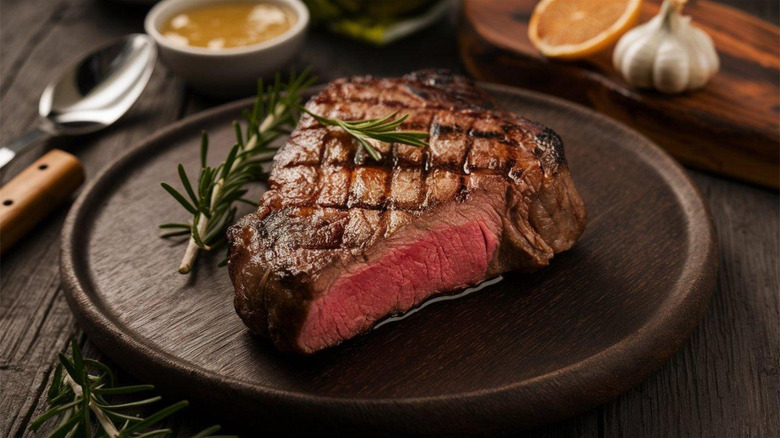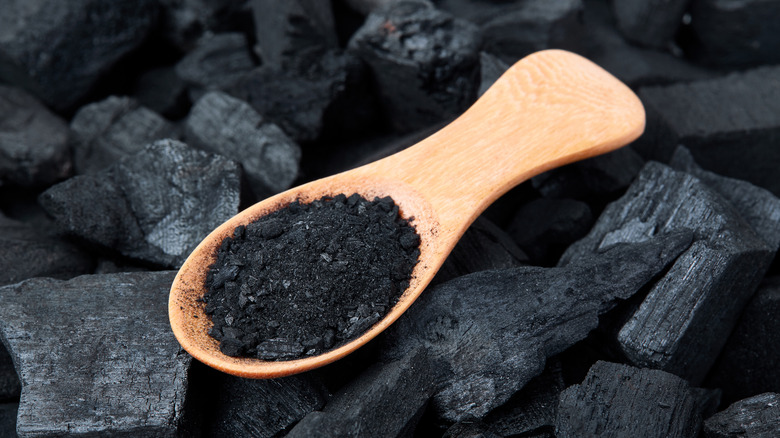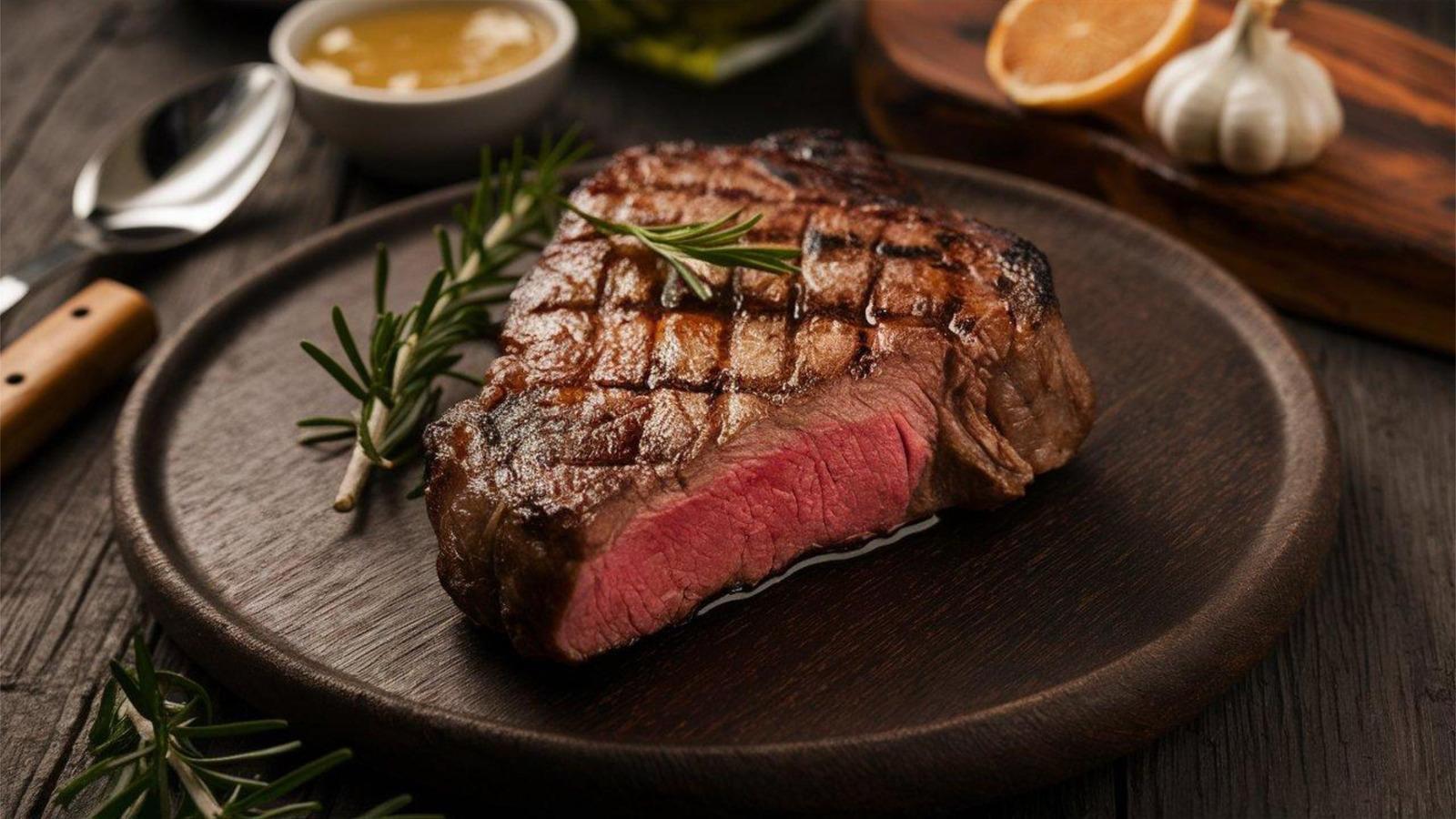
Food magic/Shutterstock
It's one of the most satisfying and unmistakable tastes for hungry carnivores: a piece of meat that was flame-grilled over real charcoal. The process imparts a smoky richness that simply isn't present in other popular steak-cooking methods, like using propane grills, pan-frying, roasting, and more. However, those who lack a suitable grilling space don't need to give up on their ideal steak flavor.
The only seasoning you need is the aptly-named charcoal seasoning. There's no doubt that it's less common than everyday spices like chili or garlic powder, or even familiar blends such as Montreal steak seasoning. However, it's a simple product at its core.
The most critical ingredient is activated charcoal, a material created by burning carbon-rich items like wood and coconut shells at extremely high temperatures. This is followed by processing steps such as treatments with acid and oxygen to purify and "activate" the charcoal that's produced. Though it's often used medically to soak up potential toxins or poisons in the body, it's also become a part of the culinary scene, where it's prized for its smoky flavor that mimics a real grill.
The finer points of charcoal seasoning

Trexdigital/Getty Images
Commercial blends of charcoal seasoning often balance the mixture with additional spices, including salt, pepper, onion powder, garlic powder, and more to produce a ready-made flavor enhancer for meat, vegetables, and any other dishes that need a grill-like taste. For this reason, it's best to treat charcoal seasoning as a comprehensive flavor solution instead of a single-ingredient addition. However, skilled home cooks can add their own additional spices to customize the flavor profile of their steaks.
By unlocking the flavor of the grill without the grill itself, you open yourself up to other ways to cook a perfect steak, ranging from a sous vide in hot water to deep frying. So, the next time you need that smoky boost just like a real charcoal grill provides, reach for that handy charcoal seasoning. There's no doubt it's a more reliable way to combine spices and smoke than other options (like seasoned charcoal, which does exist).



